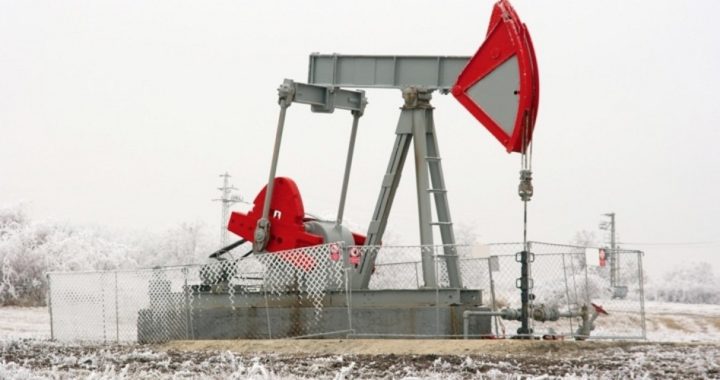
The Obama Administration is forcing private companies drilling for oil and natural gas on public lands to disclose proprietary information about the chemicals used in the process. On Friday, the Department of the Interior (DOI) issued a rule first proposed in February which tightens federal regulations on hydraulic fracturing and horizontal drilling, commonly known as fracing. The rule also sets new restrictions that DOI claims will protect against ground water contamination and air pollution.
Domestic oil and gas production has surged in recent years because technological updates have made it possible to access areas long believed to be depleted. So environmental groups hail the new fracing regulations as long overdue. “[DOI] first issued rules for fracing on public lands in 1982, but they have not been updated since 1988,” said Earthworks senior staff attorney Bruce Baizel in a statement following his testimony before the U.S. House Committee on Natural Resources. He maintains technological advances in the past two decades make these rules necessary to ensure public and environmental safety.
Yet the insinuation that drillers have operated relatively regulation-free in the more than 60-year history of hydro-fracing is absurd. In an address to the U.S. House of Representatives, Pennsylvania Republican Glenn Thompson defended fracing against this misconception explaining the process is governed by no less than eight federal laws, including the Clean Water Act and and the Clean Air Act. DOI also mentions in its economic analysis of the new rule the large number of state regulations holding drillers in check.
Likewise, chemicals used in the fracing process are already heavily regulated. Data from the U.S. Department of Energy reveals more than 98 percent of fracing fluid is made up of a mixture of water and sand. The remaining “typical fracture treatment will use very low concentration of between 3 and 12 additive chemicals depending on the characteristics of the water and the shale formation being fractured.” The new DOI rule forces drilling companies to disclose their individual proprietary formulae for fracing fluid.
This part of the new regulation only requires disclosure after companies have completed drilling, and activists see it as a significant concession. John Podesta, chair and counselor at the Center for American Progress, lamented, “Disclosure after the fact not only jeopardizes public health but also effectively cuts the public out of discussions that affect their communities.” He failed to acknowledge that companies have long been voluntarily disclosing the contents of their fracing fluids at FracFocus.org, a collaborative effort by the Groundwater Protection Council and the Interstate Oil and Gas Compact Commission to promote industry transparency. Additionally, according to DOI, “a number of states have passed legislation requiring the disclosure of fracturing fluids.”
Environmental groups, however, criticize state regulations as too varied and inadequate and their enforcement too inconsistent. They claim minimum federal standards are necessary on public lands that belong to all U.S. citizens. A case of groundwater contamination in Pavillion, Wyoming, fueled the critical fire. In December 2011 the U.S. Environmental Protection Agency (EPA) accused the drilling company Encana Corporation of unsafe practices, drawing on itself a barrage of both public and private condemnation. According to Greenwire, “Wyoming’s state oil and gas supervisor, Tom Doll, even suggested that EPA could have contaminated the deep aquifer itself when it drilled deep monitoring wells.”
U.S. senators from Wyoming, Mike Enzi and John Barrasso, have come out strongly against the new EPA rule. In a press release the two Republicans defended their state as the first to adopt rules requiring full disclosure of fracing fluids and as perfectly capable of governing its own drilling practices. “The people in state government are the same people who live and work in the areas being regulated,” said Enzi. “They take all the interests of the affected areas to heart because they have the same interests.”
“Wyoming has led the way in providing information about hydraulic fracturing operations on private, state and federal lands,” Barrasso added. “But now, Washington is rolling out more red tape that will duplicate Wyoming’s regulations… slow down American oil and natural gas production and discourage investment and job creation in the west.”
Erik Milito of the American Petroleum Institute agrees. “Energy production on federal lands has a histry of driving job creation and creating significant revenue for the government,” Milito pointed out. “But this potential could be stifled by a federal regulatory program that duplicates existing state regulations. This could have a chilling effect on investment and jobs.”
DOI’s Bureau of Land Management (BLM) estimates annual costs will range from $37 million to $44 million. There is a 60-day public comment period in which BLM asks for advice to avoid duplication of existing state requirements and make the new rule “least burdensome to operators.”




